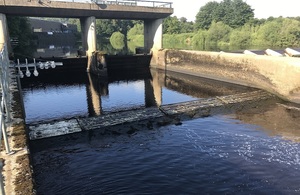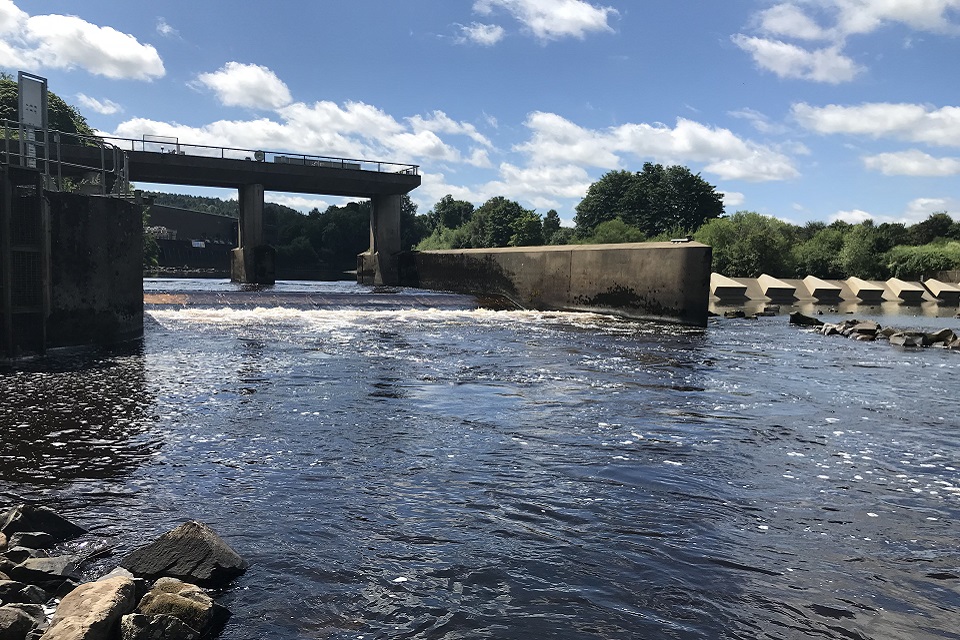Work starts on River Tyne eel pass and fish counter improvements
The Environment Agency is working with Northumbrian Water to open up the River Tyne to migrating eels, as well as carrying out a fish counter refurbishment.

The work to protect, improve and develop fish stocks on the River Tyne at Riding Mill is due to start in the next few weeks.
Northumbrian Water Limited (NWL) and The Environment Agency are coordinating their works to install an eel pass and refurbish the existing fish counter.
NWL is constructing the new eel pass to improve upstream access for the eel, a designated priority species, to ensure they can migrate more freely as part of their life cycle.
While this work is taking place, the Environment Agency is taking the opportunity to replace part of the existing fish counter, used to monitor the number of salmon and sea trout stocks in the River Tyne.

Fish counter has ‘enhanced our understanding’
Morton Heddell-Cowie, Fisheries Technical Officer at the Environment Agency, said: Environment Agency said:
The operation of the fish counter at Riding Mill has enhanced our understanding of the status of salmon and sea trout stocks in the River Tyne, as well as of fish movements in response to changes in flow and temperature.
The equipment has counted 750,000 fish since it was installed 25 years ago, and this refurbishment work aims extend its’ lifetime another 25.
Precautions will be taken to minimise any disruption to the local environment during the works. Fish will be safely removed from the affected area prior to the work taking place and a fish passage will be maintained. Working in partnership with Northumbrian Water while they construct their vital eel pass means we can minimise disruption by carrying out our two complimentary projects in one go.
Andy Downer, Project Manager at Northumbrian Water, added:
Our new fish pass is an incredibly important environmental scheme, which will help to open up the river so that young eels are able to easily migrate upstream. This vital work follows an £11m project completed last year – which saw eel protections screens fitted along a number of North East locations including the River Tyne to prevent them from being drawn into the inlet pipes.
Over recent years we have seen a decline in the population of European eels in the area, so it is exciting to see how this work hopefully allows this population to flourish again. We have worked closely with the Environment Agency, and co-ordinated with them in order to minimise disruption as much as we possibly can.
As we carry out the work, we will have ecologists on-site to rescue the fish as we divert the flow of the river and drain a very small section of it – making sure that the fish are well looked after and isolated away from any work that is taking place.